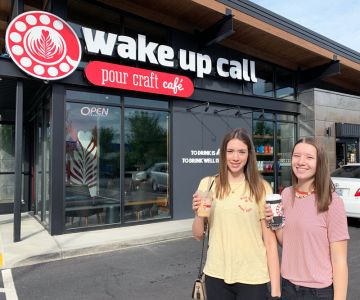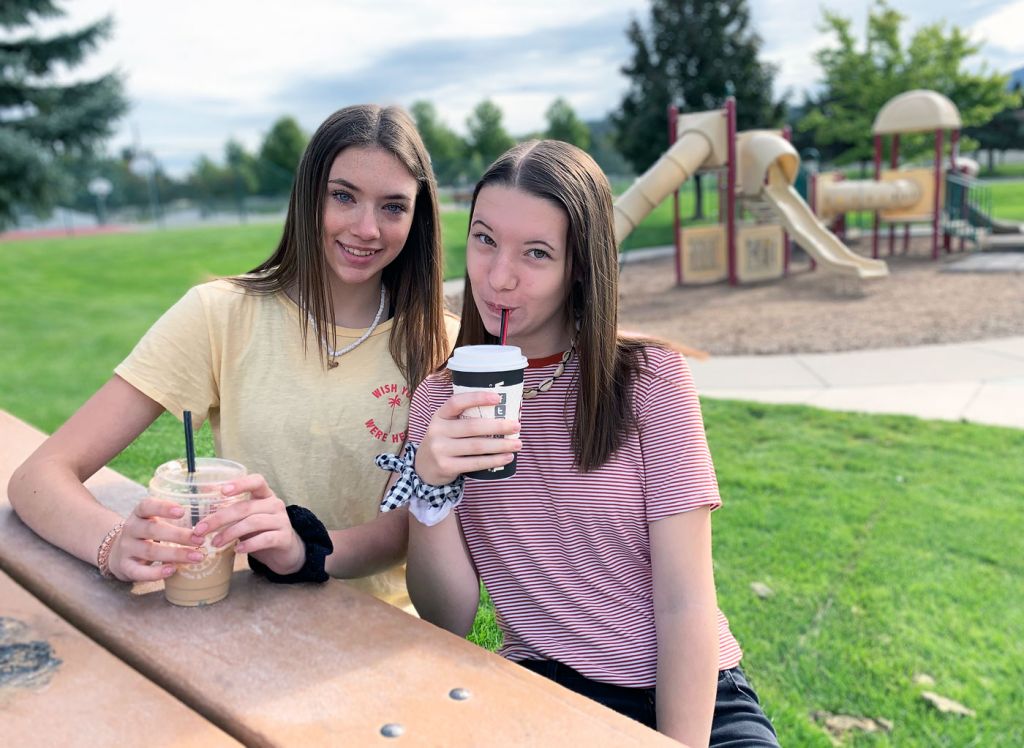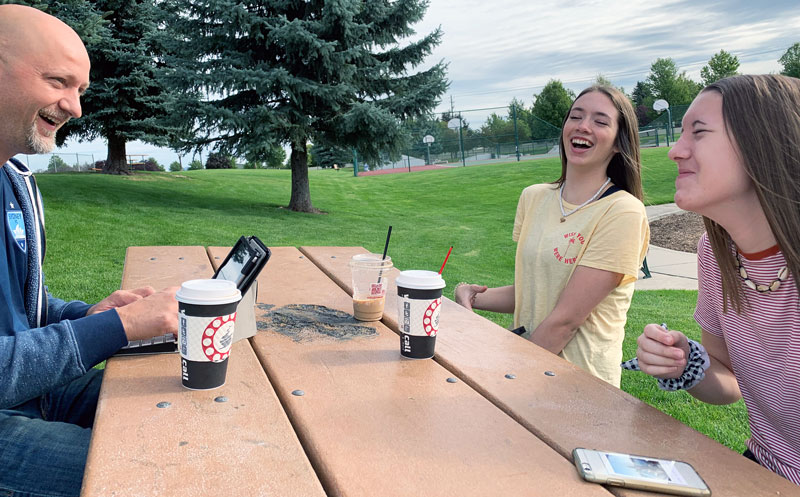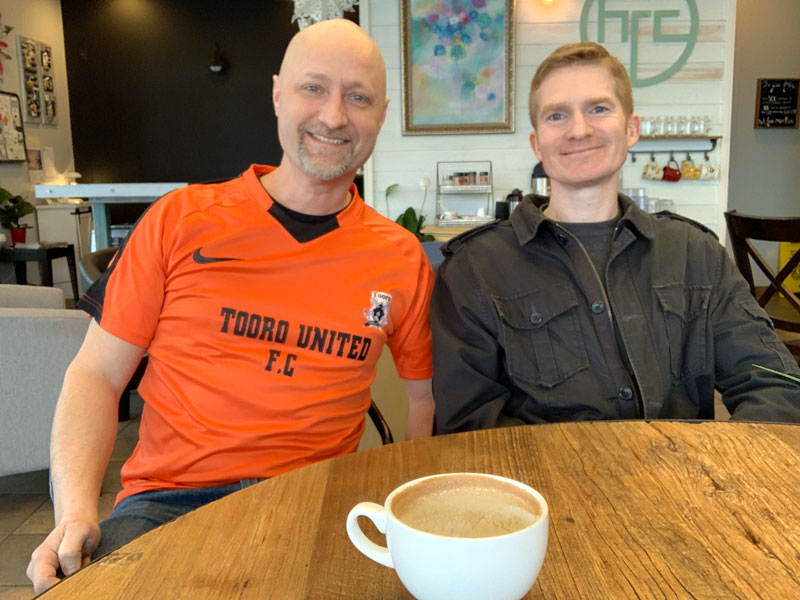Insight from Gonzaga’s ‘Coffee Professor’
Professor Stacy Taninchev would love to talk to you about your cup of coffee. No, not about latte art or that crazy-amazing cappuccino that made your week — though as a former Liberty Lake coffee shop owner she would be all ears.

Professor Stacy Taninchev
Rather, Taninchev has a penchant for getting her Gonzaga University students to percolate on a favorite topic until they glean insights into themselves and the world they live in. Example: The class she teaches based upon “The Hunger Games” that provokes discussion about authoritarian regimes, basic human rights and the values of democracy.
Love coffee? Enroll in her first-year seminar class, “POLS 193: Brewing Justice: The Global Coffee Trade.”
But in case you don’t get around to it, here are three questions to ask your next cup of coffee, inspired by a conversation with Taninchev at Arctos Coffee and Roasting Co., just down the street from the GU campus.
Question 1: Where are you from?
One of the assignments in the “Brewing Justice” class is a coffee shop interview. Students head to Spokane-area shops with inquiries exploring the origins of the coffee served at each establishment.
Some baristas are clueless, while an increasing number can trace every step a bean took since departing its original home growing region — some even able to name the farm it was grown on.
Taninchev then teaches her students to research and ask questions about the place this coffee originated from, such as:
- Was it grown in an area where farming practices are leading to deforestation? Shade-grown coffee plants typically produce a greater yield, but the greater density and conveniences created when canopies of trees are cleared out of the way makes sun-drenched planting a common practice in once-forested regions of the world.
- What about the wildlife that call these farms home? The Smithsonian’s National Zoo & Conservation Biology Institute actually runs a “Bird Friendly” certification process for coffee growers. Sun-drenched coffee farms that have been carved clean from forests remain hospitable to 61 bird species in Peru, according to Smithsonian researchers. By comparison, “partial shade” farms support 79 species. Natural, shade-grown farms, with layers of canopies reaching as high as 35 meters? A whopping 243 species of birds can be supported there.
- What about the coffee region’s political environment? Many of the best coffee-growing regions in the world are formerly colonized countries that have faced a long series of challenges. Taninchev encourages her students to learn about these places. What is the history of coffee growing in the country? Was there oppression of indigenous peoples or other coffee growers/laborers? How have government regulations affected them? How has the global trade regime affected them?
“We start with the cup of coffee we drink, but my goal as an international relations and political science professor is to get these students to understand … the interconnections between us and the rest of the world and how we affect each other,” Taninchev said.
Question 2: Who brought you here?
If your coffee could tell you about the human hands it has passed through, the stories may read like a novel. Indeed, Taninchev’s students do read a novel. “The Taste of Many Mountains” was written by economics professor Bruce Wydick in part to illustrate the human impact of coffee’s journey from peasant Guatemalan growers to a U.S. cup.
“I do want them to think about the farmer behind the cup when they think about whether they want to pay 25 cents more for a cup of coffee at a place that has organic Fair Trade coffee,” Taninchev said. “But what’s more important than paying more for the coffee and understanding certifications is helping people. … It’s to empathize with people in other places and to understand their history and political system and how it affects people’s everyday lives.”
She referenced a June 2019 Washington Post article detailing the plight of Guatemalan coffee farmers who are abandoning their farms to migrate to the United States. Why? External factors have pushed the price of coffee down sharply the past two years, leaving Guatemalan farmers unable to cover costs — even fair-trade and premium growers who are guaranteed a minimum price per pound are nowhere close to breaking even.
Taninchev teaches her students to ask questions about the real human beings behind the coffee we drink. Is there a way to help them receive better education? Are the leaders of coffee-originating countries as well as coffee-consuming countries treating the farmers humanely? Should “economic migrants” fleeing poverty and starvation be treated differently from refugees fleeing persecution and violence?
“The most important thing is I want people to understand and empathize with people in other countries,” Taninchev said.
The most important thing is I want people to understand and empathize with people in other countries.
Gonzaga Professor Stacy Taninchev
Question 3: How are you going to make me a better human?
Taninchev is often asked about the best certification to look for “to get the most money back to the growers.”
Before addressing the question of certifications, she emphasizes that helping those growers receive an education is more important than giving them a slightly higher price for their coffee.
“The certifications bring them a little more income, but access to education will bring them opportunities to get out of coffee growing and pursue other careers as well as the ability to hold their government responsible for injustices,” she said. “Knowledge is power.”
That said, she encourages U.S. consumers to learn about endorsements such as Fair Trade, Rainforest Alliance, Bird Friendly or certified organic. Single origin relationships are becoming more common in specialty coffee shops, a trend Taninchev added could be ideal if third-party oversights are also involved to keep one or both of the parties in these direct trade relationships from “saying whatever they want.”
“For me, being a responsible consumer is one part of the equation,” Taninchev explained, “but it’s much more important to understand your connection in the global order, how not only your consumption patterns but also your political choices affect other people and affect us.”
Through her “Brewing Justice” class, Taninchev and her students have the unique opportunity to study this connection firsthand. In 2017, she traveled to Colombia to study the coffee industry.
But education is available closer to home, indeed as close as your favorite cup of coffee. Sit down with it, breathe deeply of that invigorating aroma — and ask your coffee some questions.
Stacy Taninchev, Ph.D, is associate professor and chair of the political science department at Gonzaga University. She lives in Liberty Lake with her husband, Bobby, an executive chef who specializes in Mediterranean-inspired food. The Taninchevs own Bobby’s Café & Catering and previously owned Twisp Café & Coffee House, both based in Liberty Lake.
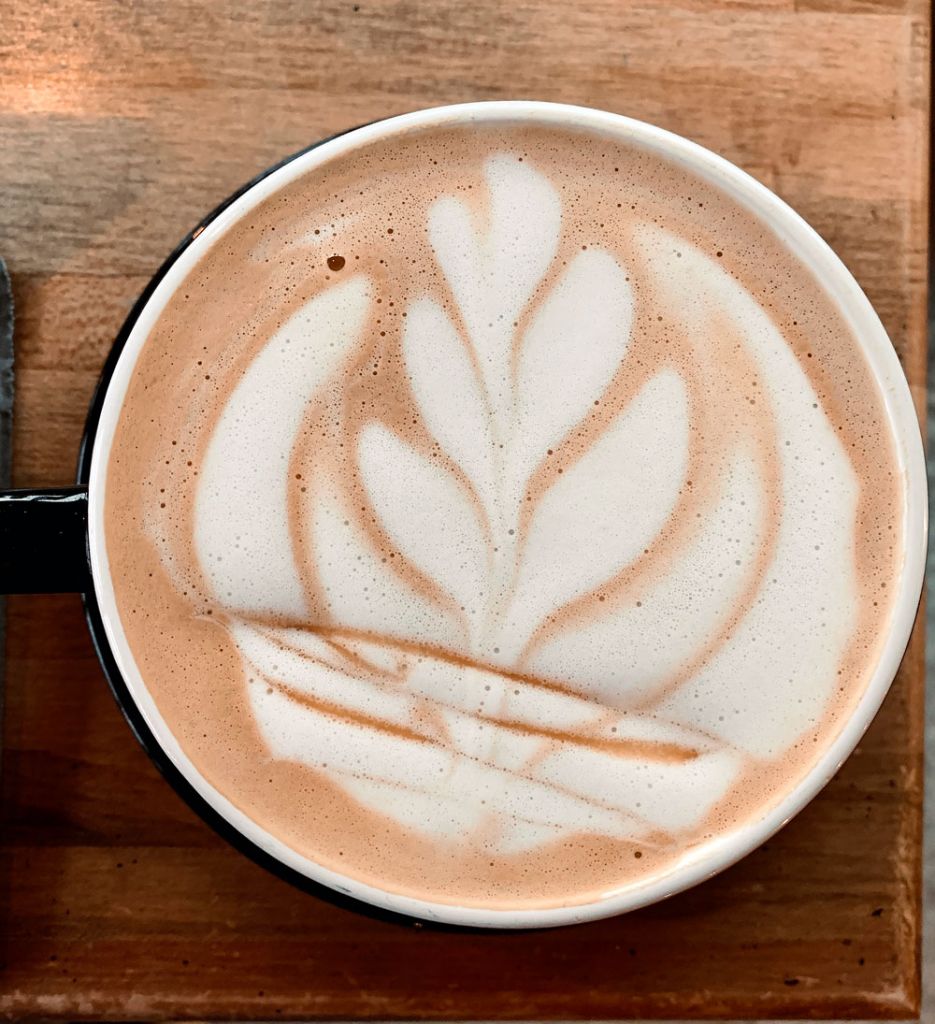
Coffee Notes
Arctos Coffee and Roasting Co. is one of my go-to coffee spots in Spokane, and so I suggested it to Stacy for this interview given its proximity to Gonzaga. I tried the maple and oat milk-infused Logan Latte (pictured above). Yes, please. Stacy said she has enjoyed Arctos lattes, but on this day she sipped on the brewed coffee made from beans roasted in-house.
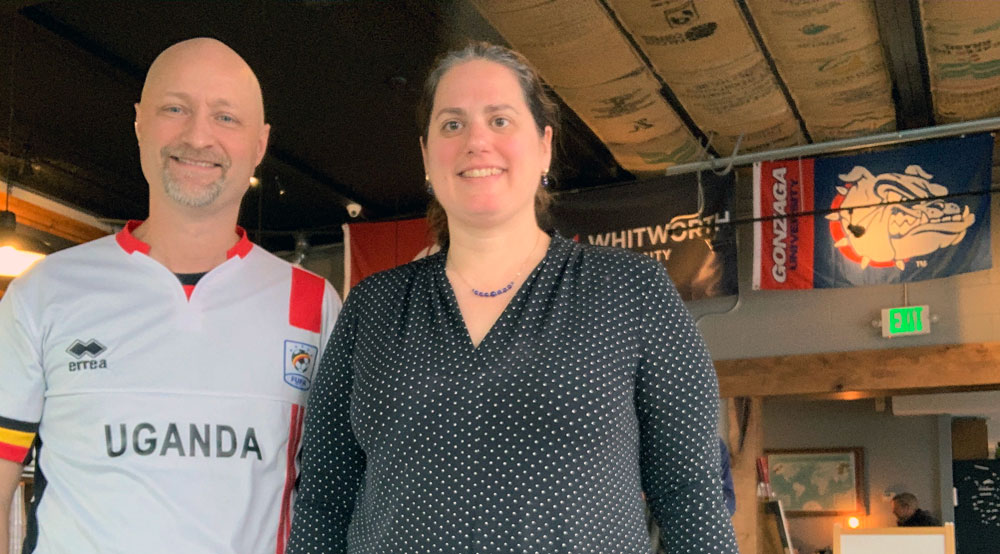
I first met Stacy and her husband, Bobby, when they owned Twisp Cafe & Coffee House in Liberty Lake, and I’ve been fans ever since. Stacy, thanks for allowing me to “sample” your coffee class and share your insights!
— Josh Johnson (soccer jersey: Uganda national team)
While you’re here, would you do me a favor?
If you enjoy articles like this one, join the CoffeeJosh mailing list. It’s hurry-free, spam-free and also free … free. As a thanks, I’ll send you a PDF — you guessed it, free — that has 10 of the best coffee shop orders in the Spokane area. (All 10 are drinks and treats local coffee shop owners make for themselves. In this case, expect to pay for your order and feel like it was totally worth it.)

